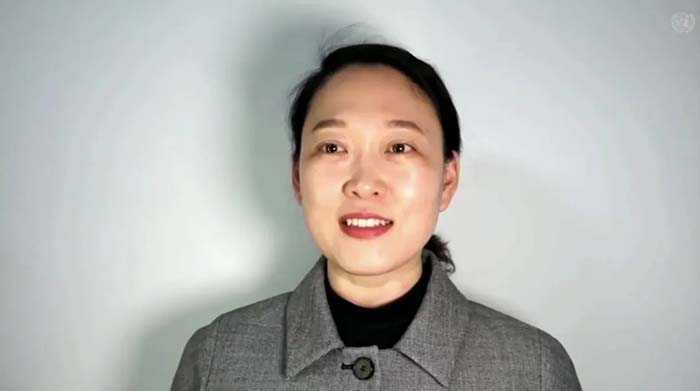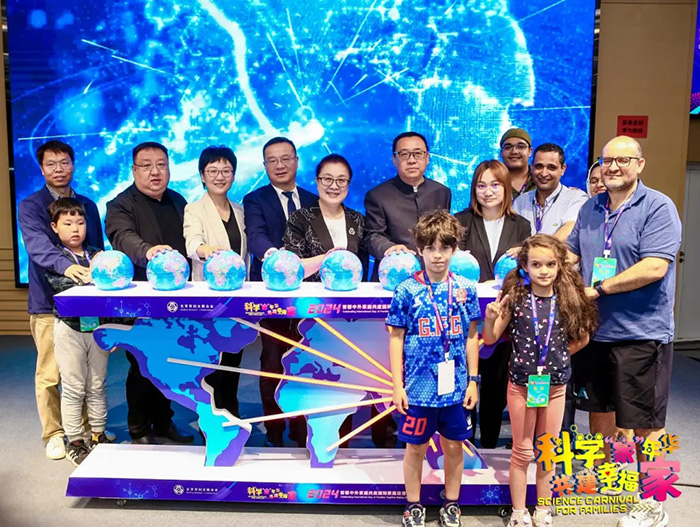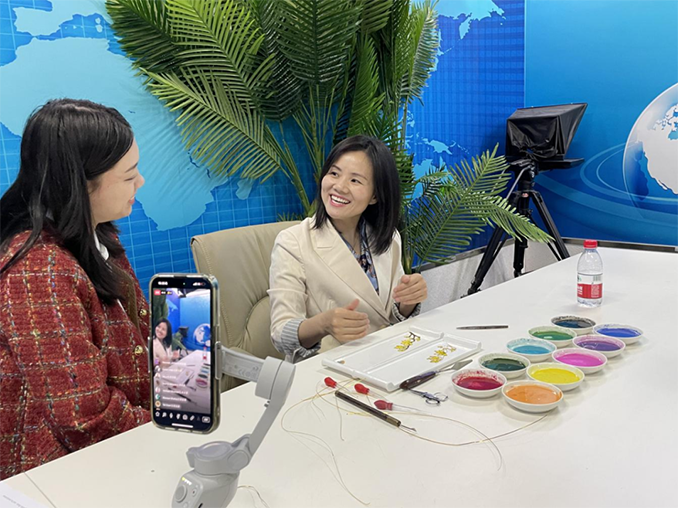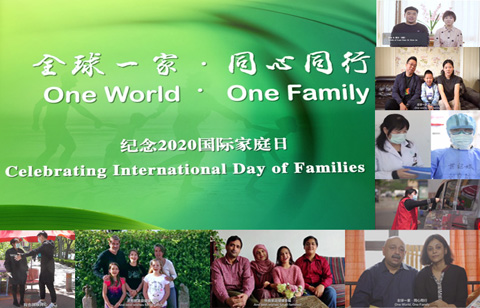Empowering Communities Through Positive Parenting: Serving Thousands of Families
Date:2025-11-12 14:13:43 Views:Recently, the Positive Parenting Workshop, part of the “Beijing Family Education and Mental Health Guidance Capacity Enhancement Project” organized by the Beijing Women’s Federation and hosted by the Beijing Family Education Research Association, was successively launched in Xicheng, Fengtai, and Shunyi districts. This project has injected new vitality into grassroots family education services.
As a key component of the 2025 BWF Family Education and Mental Health Guidance Capacity Enhancement Project, the Positive Parenting Workshop aims to systematically enhance the city’s overall capacity for family education guidance. It also seeks to help parents better fulfill their primary responsibilities in family education. Designed for grassroots BWF officials, community social workers, and family education volunteers, the workshop focuses on enhancing their professional knowledge and practical skills in psychological services. It trains core facilitators for community parent schools, provides standardized curricula, and equips these schools to deliver systematic training for parents. These efforts introduce scientific parenting concepts to thousands of households. This, in turn, strengthens grassroots family governance and fosters a better environment for children’s healthy growth.
From “Listening” to “Co-Creating”:
A Transformative Learning Experience
No lengthy theoretical lectures, no one-way knowledge delivery. Upon entering the workshop, participants could be seen seated in groups. They were engaged in lively discussions and role-plays under the guidance of experts on real-life topics such as “how to respond to a child’s emotions.”
“We’re not here to train participants. Rather, we aim to awaken and stimulate their own experiences and wisdom,” one of the experts explained.
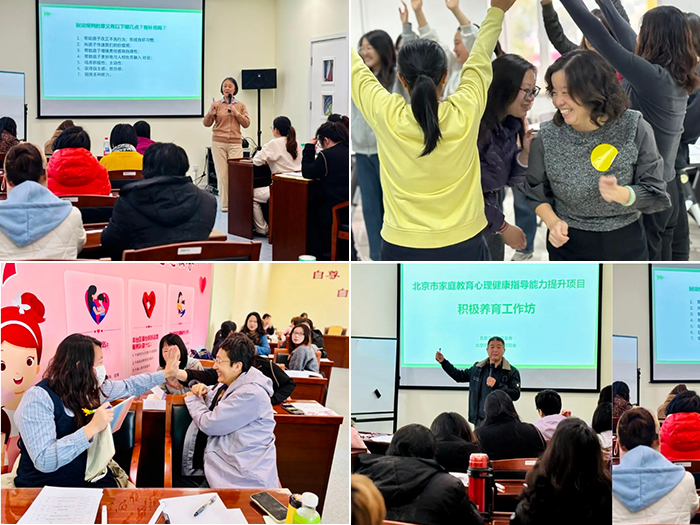
Unlike traditional lecture-style sessions, this workshop was led by a team of senior experts from the Beijing Family Education Research Association and focused on participatory learning. The program consisted of four modules and six major themes, covering topics ranging from understanding children’s psychological “fuel” of competence, control, and belonging to mastering practical icebreaker skills in parent-child communication. It also addressed learning how to transform children’s traits into strengths and co-creating family rules that foster “growth.” The courses combined theoretical depth with practical application. Group discussions, case simulations, and debates made psychological knowledge tangible and applicable. Participants were no longer passive listeners but active contributors of ideas and insights.
From “Anxiety” to “Growth”:
A Journey of Emotional Renewal
For many participants who are parents, the workshop provided a timely opportunity for personal growth.
“My biggest takeaway is realizing that acknowledging emotions matters more than correcting behavior,” shared a participant from Xicheng District. “Before, when my child threw a tantrum, my first instinct was to stop it. Now, I try to understand the need behind the emotion and accept it first.” Her reflection resonated deeply with the other parents.

The workshop transformed the concept of positive parenting from an abstract idea into practical methods. It taught participants how to understand a child’s traits from a developmental perspective and leverage them as strengths; how to create a psychological support system focused on competence, control, and belonging; and how to identify and apply their own strengths in parenting. Participants came to understand that true education is about teaching children how to live, not just how to succeed.
From “Theory” to “Practice”:
A Warm Gift of Empowerment for the Grassroots
Beyond knowledge acquisition, the workshop provided grassroots workers with a practical “toolkit.” Many participants were not only parents but also community educators, creating a ripple effect of family education throughout their neighborhoods. The communication techniques, rule-setting strategies, and self-regulation tools they learned can be directly applied in their daily community services and parent-school activities.
“This isn’t just about acquiring knowledge. It’s about learning a way of working,” said a BWF official from Shunyi District. “We’ve learned how to support and guide families in our community with greater skill and empathy. The concept of positive parenting can truly make a real difference to ordinary families.”
The successful implementation of the Positive Parenting Workshop has significantly strengthened the grassroots talent foundation for family education guidance. It serves as a strong example of empowering community-parent schools and enhancing their role in local governance. Going forward, the Beijing Women’s Federation will continue to partner with professional institutions to advance targeted initiatives in mental health and family education. These efforts will provide more scientific and precise support for families across the city and collectively foster a nurturing home environment that promotes children’s healthy development.
